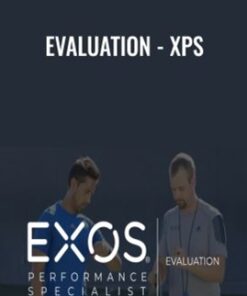Maria Broadstreet, Stephen Jones & Mitch R Abblett – The Pediatric Crisis Certificate Course: Quick Assessment & Rapid Action
Keywords List
and
And
The
to
the
a
A
you
You
for
Summary
• Maria Broadstreet, Stephen Jones & Mitch R Abblett – The Pediatric Crisis Certificate Course: Quick Assessment & Rapid ActionWhen caring for a sick child, situations can go from urgent to emergent in a matter of seconds.Our new-and-improved online course — The Pediatric Crisis Certificate Course: Quick Assessment & Rapid Action — will guide you through practical strategies to recognize, manage, and even prevent common and emergent conditions with your young patients.Join pediatric experts Maria Broadstreet, RN, MSN, CPNP, and Stephen Jones, MS, RN, PNP, ET, in this all-inclusive, self-paced training today and:Get expert tips for stabilization and critical assessmentGain life-saving knowledge to handle Neuro, Cardiac, Respiratory, and many other emergenciesLearn non-confrontational ways to talk about vaccines with your patients and their familiesDevelop the best treatment strategies for concussions and sports injuriesMaster the recognition of anaphylaxis and allergiesBecome your patients’ biggest advocate by understanding your responsibilities when you suspect child abuse…And so much more!Here’s what’s waiting for you when you REGISTER NOW:Mommy, I Don’t Feel So Good!with Maria Broadstreet, RN, MSN, APNWell ChildAssessment/Diagnosis of Problems by Age GroupHow to take a thorough historyGrowth & Development: What’s Normal?Developmental milestonesAssessment of developmentAnticipatory Guidance: “What Do You Want to Look Out For?”Through the 1st yearToddlerSchool ageTeens & beyondMore Vaccines?HPV: It’s not just for girlsPertussisInfluenzaWhat about autism?Pediatric Lab InterpretationIdentifying baseline testingCan an allergy test be done in primary care?Interpreting resultsPresenting Pediatric ProblemsInfancyRSVFailure to thrive: Metabolic disorders, heart diseaseMeningitisSchool AgeObesityHypertensionPre-hypertension vs.
• hypertensionCauses: Renal, cardiac, lifestyleEval/treatment: Dietary guidelines 2010, medications, link to cholesterolAdolescents/TeensHeadachesDepression/suicideDrug AbusePrescription drug overdoseStreet namesPediatric EmergenciesAllergies/anaphylaxisSeizuresDrowningParental GuidanceConcussions & Sports InjuriesNew International GuidelinesReturn to playTreatment strategies vs.
• adultsSymptoms/Long-term complicationsWeight lifting/performance enhancing substancesAntibiotic Resistance/MRSAEnergy DrinksLife-Threatening AllergiesInternet SafetyThe Joint CommissionPatient safety goals: What are they?Medication safetyStaff communicationPreventing infectionRisk Management: A 7-step approach to protect yourselfPatient Satisfaction MetricsDischarge informationLife-Threatening Pediatric Emergencieswith Stephen Jones, MS, RN, CPNP, ETPediatric Stabilization & Critical Assessment GoalsEssential data to collectPrimary and secondary survey:Assessment and interventionsImmediate interventions for life-threatening situationsHypothermia and its multisystem implicationsCode medications: The “Big 3”Technology: The Benefits & the PitfallsRespiratory devices: Delivery systems, oxygen therapy, mist, humidificationPulse oximeterInterpreting key laboratory findingsEEG and lumbar punctureSuspecting Child AbuseShaken baby syndromeMunchausen by proxyChild maltreatmentMandatory reportingInfectious DiseasesGroup b strepBacterial/viral meningitisToxic shock syndromeHerpes: Simplex and encephalitisKawasaki diseaseRheumatic FeverInfluenzaFever and hyperthermia managementIngestions & PoisoningGI decontamination“Pharming” implicationsOTC medications: Cold/cough preparations, acetaminophen, NSAIDsAlcohols, hydrocarbonsLead intoxicationGastrointestinal EmergenciesPyloric stenosisNecrotizing enterocolitisMalrotation/Bowel obstructionAppendicitisDiarrhea and dehydration:Evidence-based guidelinesTrauma in ChildrenSports and non-sports related injuriesAbdominal trauma: Bowel perforation, spleen & liver lacerationChest trauma: Pulmonary contusion, pneumothorax, hemothorax, flail chestNeurological involvement:Head trauma: TBI, cerebral edema and concussionsSeizuresCardiovascular EmergenciesHypertrophy cardiomyopothyCardiomyopathiesAnaphylaxisPrevention & initial/acute managementAnaphylactic shockOptimizing use of the Epi penTonsillitisCroup: Viral and bacterialRespiratory Emergencies: Upper AirwayPneumoniaBronchiolitis (RSV/Non-RSV)PertussisAsthmaMeet the Course Experts:Maria Broadstreet, RN, MSN, APN, currently practices at Modern Med Recovery in Park Ridge, Illinois and treats patients at Ann & Robert H. Lurie Children’s Hospital in Chicago.
• Maria has a special interest in addressing and treating pain and is certified as a Pain Resource Nurse.Stephen Jones, MS, RN, PNP, ET, is a Pediatric Clinical Nurse Specialist/Nurse Practitioner and Enterostomal Therapist who practices fulltime at the Children’s Hospital-Albany Medical Center in Albany, New York.
• In this role, Stephen cares for children in a variety of pediatric units, with both acute and chronic conditions, including the general pediatric units and PICU.Mitch R Abblett, Ph.D., is a clinical psychologist, author and international presenter on mindfulness, compassion, self-compassion and positive psychology.
 Spanish for HealthCare Professionals: Intensive Online Course - Tracey Long
1 × $65.00
Spanish for HealthCare Professionals: Intensive Online Course - Tracey Long
1 × $65.00 2-Day: Stroke Rehabilitation Intensive Training Course: Best Practices for Rapid Functional Gains and Improved Outcomes - Benjamin White
1 × $72.00
2-Day: Stroke Rehabilitation Intensive Training Course: Best Practices for Rapid Functional Gains and Improved Outcomes - Benjamin White
1 × $72.00 1% Better Every Day Strength Building System - Ricky Lundell
1 × $32.00
1% Better Every Day Strength Building System - Ricky Lundell
1 × $32.00 10 Brain-Based Strategies: Help Children Overcome Anxiety and Promote Resilience - Tina Payne Bryson
2 × $29.00
10 Brain-Based Strategies: Help Children Overcome Anxiety and Promote Resilience - Tina Payne Bryson
2 × $29.00 Evaluation - XPS
1 × $45.00
Evaluation - XPS
1 × $45.00 Ethical Principles in the Practice of Rhode Island Mental Health Professionals - Allan M. Tepper
1 × $84.00
Ethical Principles in the Practice of Rhode Island Mental Health Professionals - Allan M. Tepper
1 × $84.00 Complete Ericksonian Hypnosis – Beginners course
1 × $80.00
Complete Ericksonian Hypnosis – Beginners course
1 × $80.00 10 Steps to Learn Anything Quickly - John Sonmez
1 × $104.00
10 Steps to Learn Anything Quickly - John Sonmez
1 × $104.00 2010 Edition – Market Analysis [Software (WIN)] – Timing Solution Advanced
1 × $232.00
2010 Edition – Market Analysis [Software (WIN)] – Timing Solution Advanced
1 × $232.00 1-Hour Home Selling Machine – Wolff Couple
1 × $293.00
1-Hour Home Selling Machine – Wolff Couple
1 × $293.00 2-Day Intensive Training: Shame, Guilt and Self-Criticism Certificate Course - Pavel Somov
1 × $124.00
2-Day Intensive Training: Shame, Guilt and Self-Criticism Certificate Course - Pavel Somov
1 × $124.00 10x Formula lntensive Training - Lee Mclntyres
1 × $90.00
10x Formula lntensive Training - Lee Mclntyres
1 × $90.00 $300 a day YouTube Affiliate Marketing Blueprint - Hunter Edwards
1 × $43.00
$300 a day YouTube Affiliate Marketing Blueprint - Hunter Edwards
1 × $43.00 2X Business Multiplier - George Gill
1 × $35.00
2X Business Multiplier - George Gill
1 × $35.00 8 Big Ideas - Dan Kennedy
1 × $42.00
8 Big Ideas - Dan Kennedy
1 × $42.00 Code 2 Conversions - Chris Rocheleau
Code 2 Conversions - Chris Rocheleau
 Dan On Demand - Dan Lok
Dan On Demand - Dan Lok
 Insight - The Principles of a Fulfilling & High-Performance Life
Insight - The Principles of a Fulfilling & High-Performance Life